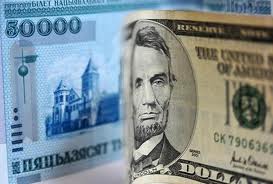

Belarus finds itself in another conflict-in-progress with Russia, with a growing wave of Russian information attacks on Belarus. Belarus lifts restrictions on the number of US diplomats in Minsk, however, a breakthrough in Belarus-USA relations remains unlikely. Belarus’s economic...

In 2018 Belarus Digest readers particularly interested in our articles on Belarus visa issues, security as well as the relations of Belarus and Russia. Belarus Digest team wishes its readers a healthy, productive and happy new year! Here we...

Although people rightly regard the Belarusian political regime as authoritarian, several independent think tanks function in the country. In this article, Belarus Digest identifies some of the main players, drawing on data from the Belarus Policy database and a ranking prepared...

On 16 February 2018 Belstat, the official statistical body of Belarus, announced that GDP growth for the first month of the year had reached a new high, surpassing the previous month’s record. Meanwhile, the Heritage Foundation’s statement on 5 February...

On 22 December 2017, the President of Belarus Alexander Lukashenka signed a presidential decree that identified Belarus as the first country in the world to legalise the blockchain—a digital ledger in which transactions made in online trading can be...

Belarusian human rights defenders agree on joint principles of human rights work. Statkievič released after 5 days in jail. MOJ denies registration of United Civic Party’s women’s branch. BAJ assesses openness of governmental institutions for journalists. 24-hour carnival completes Vulica Brasil Urban...

On 17 October 2016, new macroeconomic data from Belstat, Belarus's national statistical committee, indicated that this year's economic decline seems to have finally halted. The GDP stopped falling and foreign trade saw a slight revival. However, on 21 September the...

On 14 September 2016 First Deputy Prime Minister of Belarus Vladimir Semashka announced that negotiations on oil and gas relations between the Belarusian authorities and Russia's main economic players had failed. Meanwhile, the oil crisis has cast further uncertainty on...

On 7 September 2016 BEROC (Belarusian Economic Research and Outreach Center) held a seminar on private sector development in Belarus featuring presentations and debates from experts. Peter Arushanyants, Director of the Department of Entrepreneurship at the Ministry of Economy of...

On 25 August 2016 the National Statistic Committee of Belarus (Belstat) publicised new macroeconomic data for July, which showed that the economy is suffering from a lack of investment flows. Meanwhile, according to the National Bank of Belarus the continuing...

On 16 February 2016, President Alexander Lukashenka announced zero tolerance for structural reforms being proposed by the government. Meanwhile, since the beginning of 2015 state debt has increased by more than half and real wages in dollar equivalent have fallen...

The drop in oil prices in the first two weeks of January and the resulting volatility of the Belarusian rouble have taken centre stage. The Belarusian government took some small steps towards reforms, but took no serious measures to reform...

After several years of slow growth, 2015 became the first year of true recession. GDP fell by 3.9 per cent in January-November; employment declined over the year. The Belarusian rouble depreciated by almost 60 per cent. Despite significant changes in...

In the last month before the Presidential elections, the Belarusian economy continues to disappoint. Although decline in GDP has slowed, the -3.5 per cent growth has failed to impress. The Belarusian rouble continues to depreciate as oil prices plunge. The...

